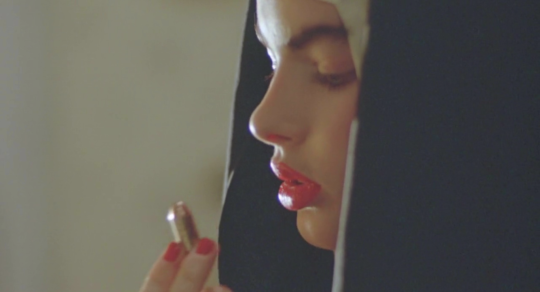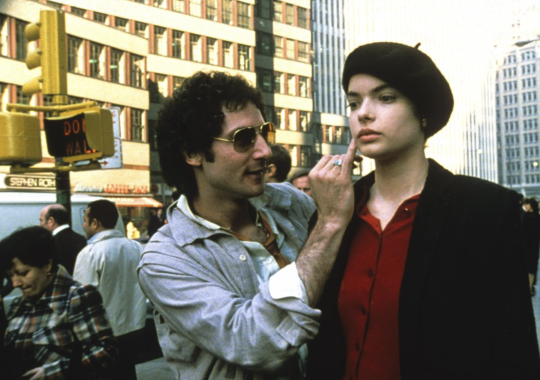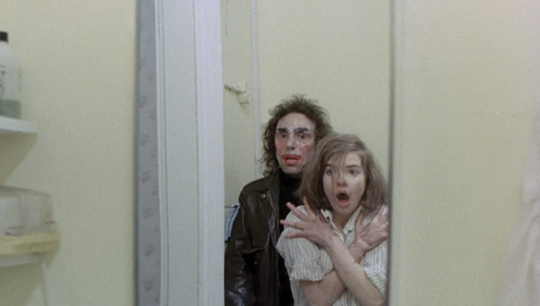The Exterminating Angel: On the Wrongness and Righteousness of Abel Ferrara’s “Ms. 45″ by Scott Tobias
By Yasmina Tawil

The most famous shot in Woody Allen’s Manhattan was photographed in the early light near the Queensboro Bridge, with Allen and Diane Keaton sitting on a bench in Sutton Place Park at East 58th Street. The bench occupies the far-right corner of Gordon Willis’ widescreen, black-and-white frame, with the bridge itself, illuminated by two sets of necklace lights, stretching from end to end. Folding this romantic moment into an unabashed love letter to the city itself, the shot was such a perfect distillation of the film’s spirit that it was used for the poster.
Two years later, on the same bench with the same view of the Queensboro Bridge, Thana, the mute heroine of Abel Ferrara’s rape/revenge exploitation movie Ms. 45, pulls a gun on another in a series of lowlifes she’s murdered in the wake of two sexual assaults in a single afternoon. Surely, Ferrara was cackling at the juxtaposition: Woody Allen’s New York is a magical place, “a town that existed in black-and-white, and pulsated to the great tunes of George Gershwin.” Ferrara’s New York is grimy and loud and violent, a hunting ground for cat-calling lotharios and lowlife predators. Defiling the famed Manhattan bench is Ferrara’s way of thumbing his nose at Allen’s romanticism.

Back when Allen was releasing Manhattan, still riding high off his Best Picture win for Annie Hall, Ferrara was in the exploitation-movie trenches with The Driller Killer, a horror movie that Variety found so risible that its critic wrote “Abel Ferrara makes Tobe Hooper look like Federico Fellini.” (Ferrara and his team were thrilled by the notice.) Though Ms. 45 was a huge leap forward in ambition and sophistication, it wasn’t so far removed from the grindhouse aesthetic of The Driller Killer, with an all-the-animals-come-out-at-night vibe that outsleazed the likes of Taxi Driver and Death Wish. 40 years later, Ms. 45 still feels like a powder keg of a movie, notable for how much it subverts the rape/revenge story without trying to transcend it. It’s full of fascinating contradictions, tied to a character whose mission of vengeance is righteous and cathartic in some respects, and messy and disproportionate in others.
Ferrara wastes not a second of his 80-minute running time in establishing New York as a hostile place for an attractive young woman like Thana (Zoë Lund, then credited as Zoë Tamerlis), who walks through a gauntlet of harassment to her job as a seamstress in the Garment District. She doesn’t have the voice to put these men in their place, and she certainly doesn’t have the voice to scream when a mugger snatches her off the sidewalk and rapes her in a back alleyway. Her powerlessness is cruelly reinforced when she gets back to her apartment and a burglar seizes the opportunity to assault her a second time. Getting raped twice in the same day may sound like a wild coincidence, but through Ferrara’s lens, it seems more like a silent conspiracy, like a pack of wolves circling a wounded gazelle. Thana gets the upper hand by clocking her second attacker in the head with a blunt object—specifically a red apple made of glass, the Catholic Ferrara’s nod to Eve in the Garden—and Thana suddenly emerges as an avenging angel.


